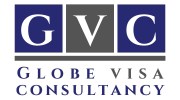Canada, renowned for its diverse culture, breathtaking landscapes, and high-quality education system, has long been a dream destination for international students. However, the cost of education can often deter aspiring learners from pursuing their academic ambitions in this vibrant country. But fear not! With strategic planning and a bit of resourcefulness, it’s entirely possible to study in Canada for free in 2024. Let’s explore the avenues available for those seeking to unlock this opportunity.
1. Scholarships:
Navigating the financial landscape of studying abroad can be daunting, especially for international students. Yet, amidst the challenges, there exists a beacon of hope: fully-funded international scholarships offered by Canadian universities. These scholarships not only ease the financial strain but also pave the way for a transformative educational experience. Let’s delve deeper into the world of such scholarships tailored for international students in Canada.
| University | Scholarship | Description | Benefit |
| University of British Columbia | Donald A. Wehrung International Student Award | Designed for academically outstanding international students hailing from impoverished or war-torn regions, this scholarship provides vital financial assistance. | Benefit varies depending on individual circumstances. |
| York University | International Entrance Scholarship of Distinction | Awarded based on academic performance and scores, this scholarship recognizes outstanding students. | Recipients receive an annual award of CAD 35,000 for up to four years, totaling CAD 140,000. |
| University of Toronto | Lester B. Pearson International Scholarship | This prestigious scholarship is bestowed upon exceptional international students who exhibit remarkable academic and creative accomplishments. Exclusive to first-entry undergraduate programs at the University of Toronto, only 37 students are selected annually. | Full coverage for four years, including tuition, books, incidental fees, and residence support. |
| University of Manitoba | International Undergraduate Student Entrance Scholarships | Acknowledging academic excellence among international students graduating from international high schools and enrolling at the University of Manitoba. | The value of each award is determined annually based on high school grade averages. |
2.Tuition Waivers:
Facilitating access to top-tier education in Canadian universities and colleges, tuition waivers play a crucial role in easing the financial burden for students from diverse backgrounds, enabling them to pursue their academic goals freely.
Curious about the contrast with scholarships?
Tuition waivers typically stem from the institution or government, often considering financial needs or specific criteria set by the institution. Conversely, scholarships come from various sources like organizations, institutions, or individuals, primarily based on academic prowess, talents, or accomplishments. Scholarships may encompass tuition fees, living expenses, or other educational costs and can be applicable across different institutions or universities.
Now that the disparity between tuition waivers and scholarships is clear, let’s delve into specific scenarios to deepen your understanding of when each is granted.
3. Hybrid Learning Platforms:
Online learning platforms present substantial financial advantages to students through virtual programs. By studying from the comfort of their own homes, students can bypass costly expenses related to relocation and commuting. This not only saves money but also time, as there’s no need to spend hours traveling to and from a physical campus. Furthermore, virtual courses often come with access to a wide range of digital resources, including e-books, online libraries, and multimedia materials. This accessibility helps to significantly reduce the expenses associated with purchasing traditional textbooks, which can be quite expensive.
In essence, online learning offers a more cost-effective alternative to traditional education, making it more accessible to a wider range of learners. Students from various backgrounds and financial situations can benefit from the affordability and flexibility of online programs. Additionally, the savings incurred by avoiding relocation and commuting costs can be allocated towards other educational expenses or personal needs. Overall, online learning not only provides academic opportunities but also helps students manage their finances more effectively, contributing to a more inclusive and accessible education system.
4. Working While Studying:
As the costs associated with studying abroad can quickly add up, finding ways to alleviate financial burdens becomes crucial. One effective approach is to work part-time while pursuing studies. Thankfully, the Canadian student permit offers this flexibility, permitting students to engage in part-time employment during their courses. This arrangement enables students to earn while they learn, with the opportunity to work up to 20 hours per week during the semester and full-time during breaks and holidays. By taking advantage of this opportunity, students can better manage their expenses and potentially even cover the cost of studying in Canada through their earnings and scholarships.
5. Vocational Education:
In Canada, technical education provides a lucrative pathway for international students seeking financial relief. Through hands-on training tailored to specific industries, students gain practical skills that significantly boost their employability and earning potential. The focus on real-world learning and industry-aligned knowledge often results in faster job placements, enabling students to swiftly generate income and alleviate educational costs. Many vocational programs also offer co-op or internship opportunities, allowing students to gain valuable work experience and potential earnings while studying. Moreover, with shorter program durations compared to traditional university degrees, technical education typically comes with lower tuition fees, making it a more economical choice for numerous students.
Low Cost Canadian Universities :
| University | Average Tuition Fee (CAD) |
| MacEwan University | $7,200 – $9,600/year |
| University of Regina | $20,290/year |
| University of Winnipeg | $18,000/year |
| Acadia University | $23,069/year |
| Mount Allison University | $20,210/year |
Conclusion:
In conclusion, studying in Canada for free in 2024 is indeed a challenging yet achievable goal for international students. By exploring various avenues such as scholarships, grants, part-time employment, and selecting more affordable educational institutions, students can significantly mitigate the financial burden associated with higher education.
Additionally, considering vocational or technical training programs with lower tuition fees and shorter durations can provide a practical and cost-effective pathway to pursue studies in Canada. With careful planning, resourcefulness, and determination, aspiring students can navigate the Canadian education landscape effectively and attain their academic and career aspirations without incurring substantial financial debt.

